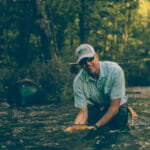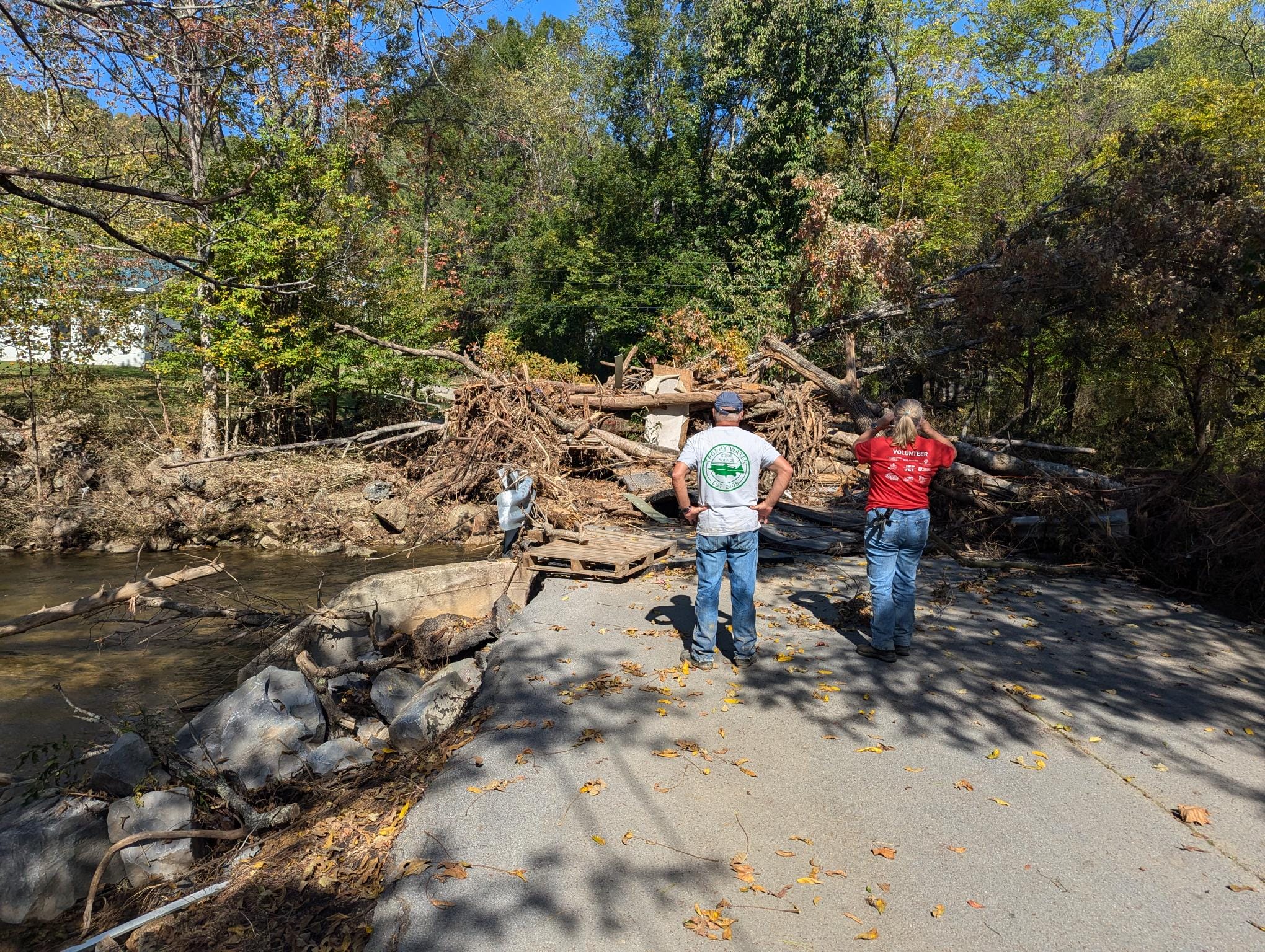Trout Unlimited’s Overmountain Chapter in Tennessee hosts a fishing day the first Saturday of each month. Participants meet in the morning and then, after considering conditions and the number of anglers who show, decide where to go.
On Oct. 5, less than a week after the remnants of Hurricane Helene ravaged the Southeast, fishing was not an option.
“We figured rather than fish, let’s have a workday,” said Ryan Turgeon, a chapter board member from Johnson City, Tenn. “We were expecting 20 to 25 people, and we got more than 125.”
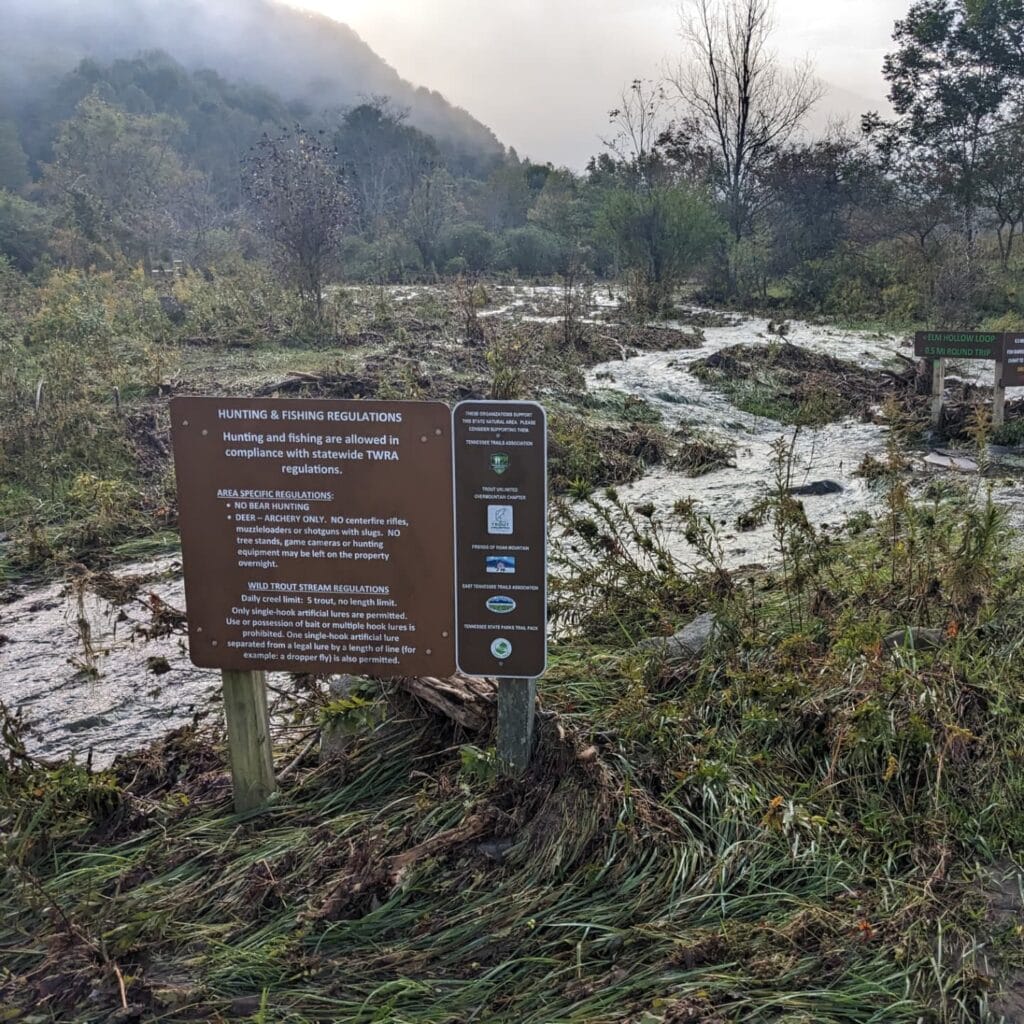
The volunteer effort was not trout-specific, but rather focused on the community.
“About a dozen people worked on cleaning a trash trap on Buffalo Creek, a tributary to the Watauga River,” Turgeon said. “The rest of us went up to Roan Mountain. We cut trees, pulled trash and shoveled mud.
“We got a lot done.”
And they and other TU members and supporters will proceed to get a lot more done as they continue to mobilize to support their devastated communities. Chapters leaders are keeping members informed through emails, phone calls and social media.
“People want to help,” Turgeon said. “They just don’t know where they can help, or how.”
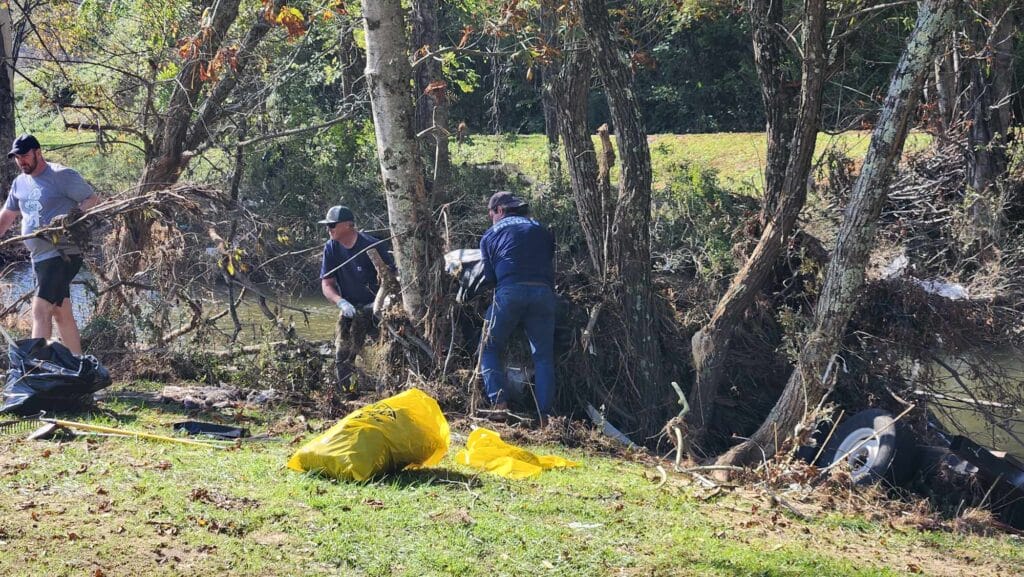
A massive problem requires big solutions
A challenge, of course, is that the problem is so massive. That’s why TU leaders across areas impacted by Helene are pulling together to plan and organize volunteer efforts.
“It took a week for me just to reach all of our board members,” said Kip Pritchard, president of TU’s Land O’ Sky chapter, which covers the Asheville, N.C. area. “Our priority has been getting our members basic needs. A lot of us are taking time to do local volunteering that is not TU-specific.”
Pritchard was able to pull together a board meeting on Oct. 15. The chapter plans to connect with local partners and supporters in the coming weeks to determine specifics about where the chapter’s focus should be.
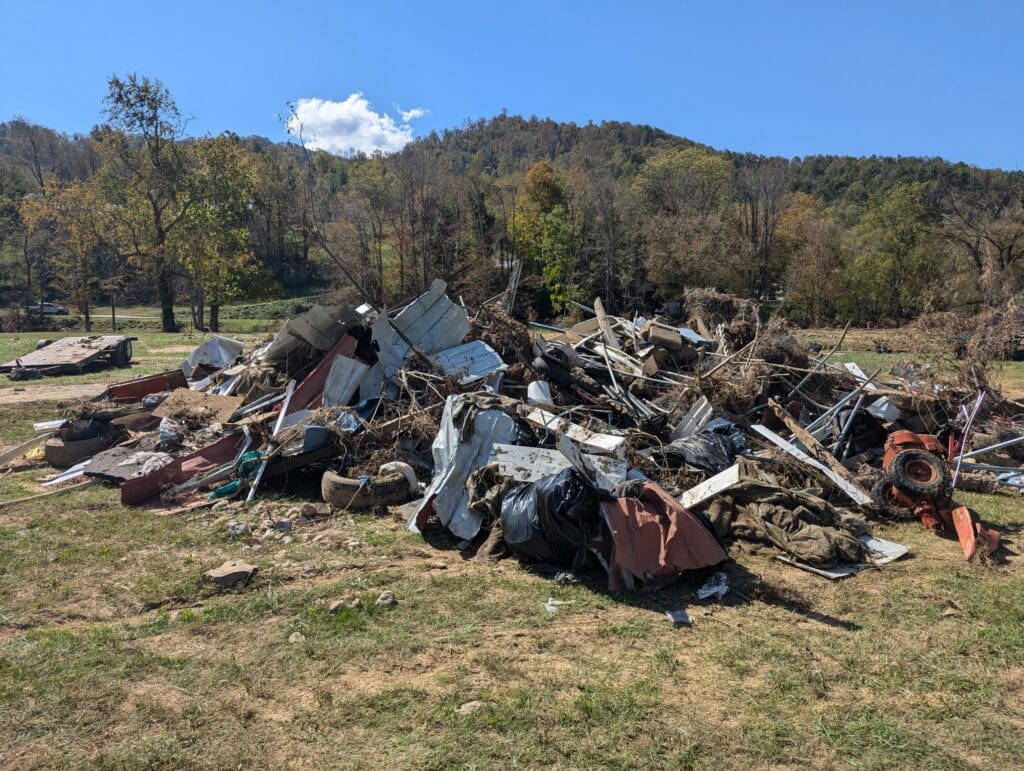
“How can we support those who have supported us?” Pritchard said. “We’re going to keep trying to be good citizens, and that phase is probably going to last for another 30 days.”
5 Rivers Costa groups also help out
Helping their community was top-of-mind for Clemson University’s fly fishing club as members surveyed Helene’s damage immediately after the storm.
Will Scott, president of the school’s fly-fishing club, said the group had plans for a river clean-up that weekend.
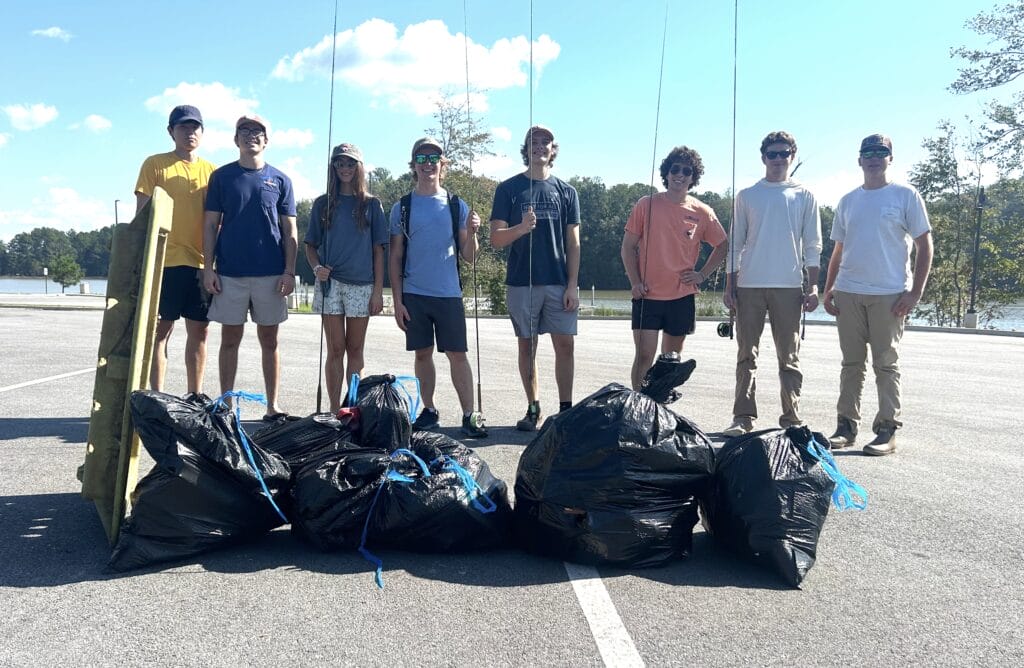
“We took an alternate route and cleaned up Lake Hartwell,” Scott said of the lake adjacent to campus. “And a lot of members got saws, loaded up and drove around and cut up trees that were down on roads.”
The club also held a food drive and fundraiser to raise money to buy supplies, spending more than $500 at Sam’s Club for supplies to be delivered to the hardest-hit areas. Club members have taken trips to the Asheville area to volunteer.
Volunteer work will continue to be a focus. In early November, the club planned a fishing and volunteer outing with the University of Georgia fly fishing club. The event will happen, but the fishing probably won’t. The clubs plan to keep working to help their communities.
“The name of the game is going to be downed tree removal,” Scott said. “It’s going to be a lot of cutting.”
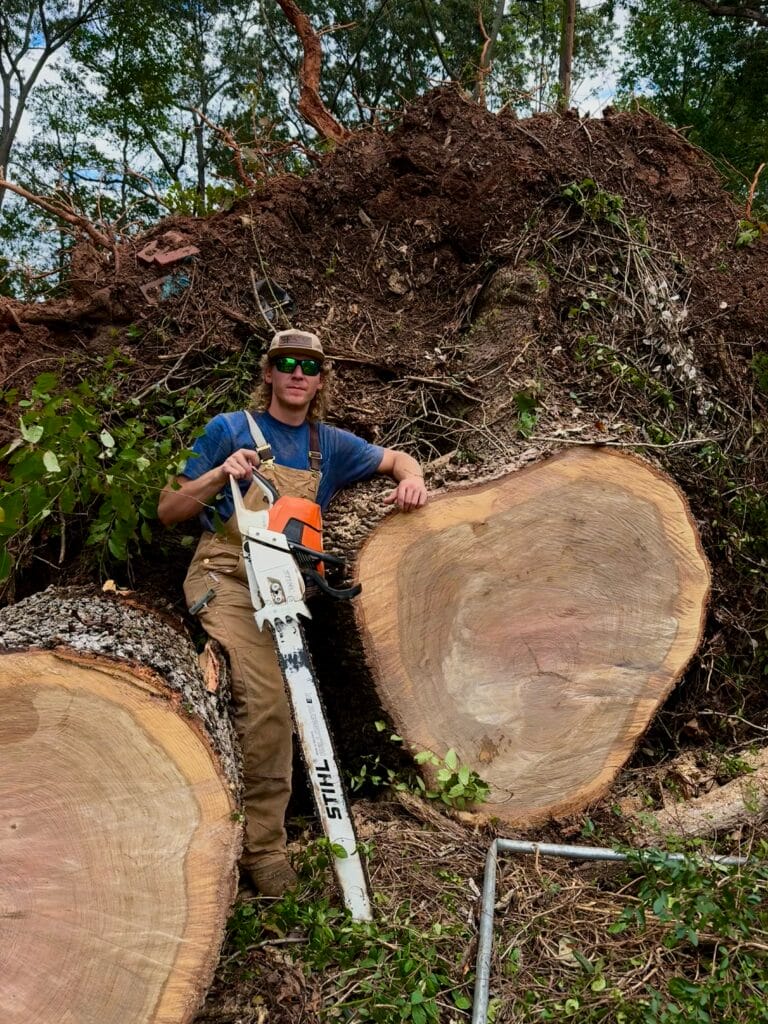
Help is needed everywhere Helene hit
Bruce Jones, who recently took over president duties for TU’s Pisgah chapter, said his chapter members generally escaped the worst of the storm’s impact.
“Everybody was more inconvenienced than anything else,” said Jones, who said the chapter members’ primary volunteer focus has been community efforts to this point. “There’s a little bit of survivor’s guilt when you look at other areas.”
The chapter has reached out to various partners to find out where they are needed.
“We’re actively reaching out to help,” Jones said. “Just this morning I finally heard from the fisheries biologist for the Pisgah National Forest who asked us if we could help with seeding to help with stabilization [damaged areas].”
While the initial focus has been on impacted areas’ and residents’ acute needs, the recovery effort is just getting started.
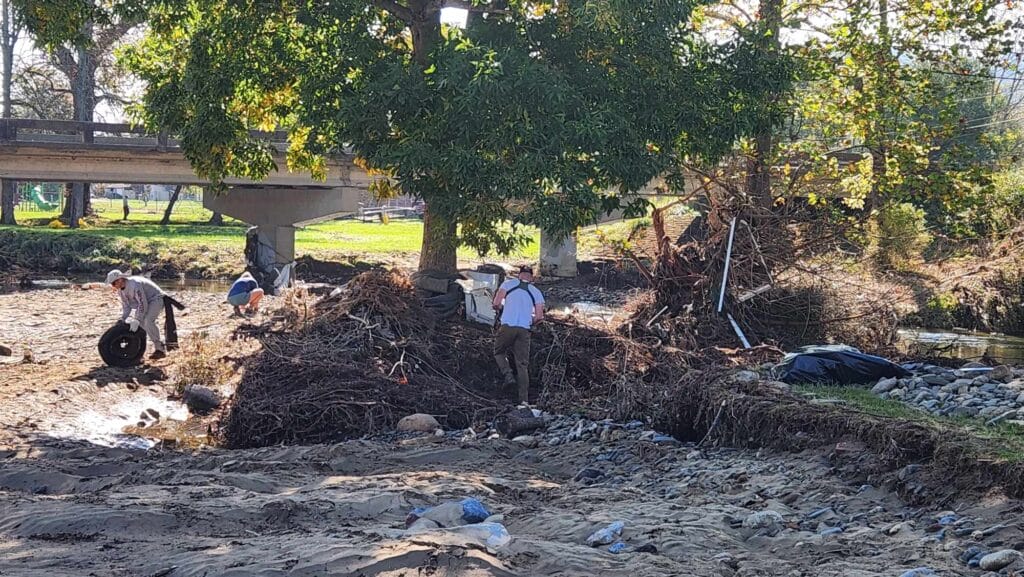
In the coming months and weeks, as access becomes possible to the hardest-hit areas, TU members and supporters will start the long process of assessing ecological impacts, including to project sites.
“Our priorities may change,” Pritchard said of her chapter’s conservation projects. “Some of the areas where we were planning to do live staking might not exist.”
Jeff Wright, TU’s Southern Appalachians project manager, said a current project in North Carolina’s Catheys Creek watershed, was spared major damage.
“It was just high enough in the watershed,” Wright said.
Wright said coordination will be important as volunteers look to continue helping. He will be working with chapter leaders and partner organizations like the U.S. Forest Service to help come up with priorities.
“Everybody’s asking, ‘What can we do to help?’” Wright said. “We’ve got to formulate a plan, which is what we’re working on.”
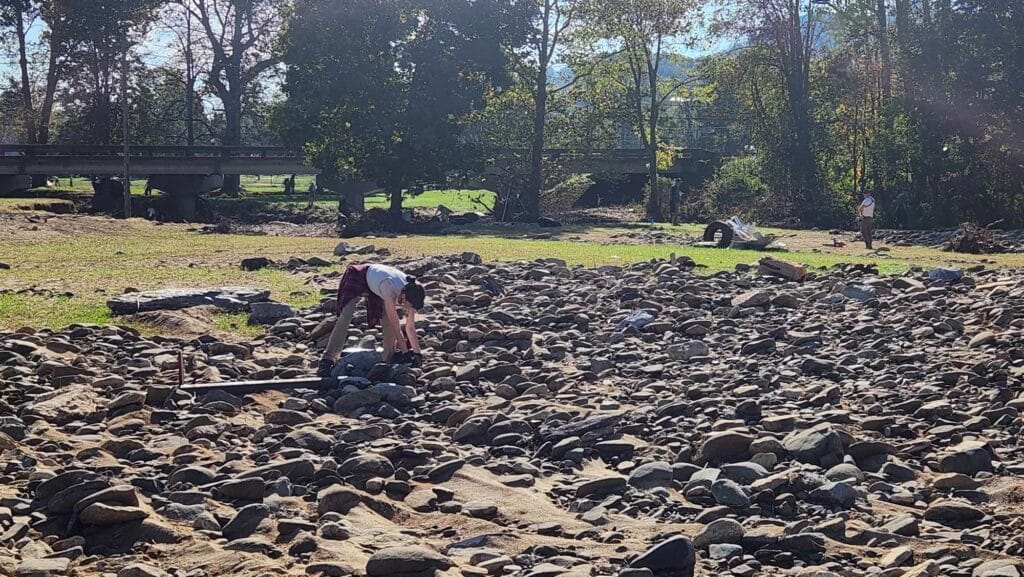
Assisting businesses
There is also the matter of businesses that have been dealing with the financial aftermath.
Matt Canter, owner of Brooking Anglers, a fly fishing outfitter Western North Carolina, said the immediate area around the shop did not suffer significant damage.
“We got a bunch of rain and some flooding,” Canter said. “We definitely didn’t get the major flooding.”
But the business, like so many in and near the storm’s path, was impacted.
“When we finally got power and internet back, we had to cancel 230 guided trips,” said Canter, who noted that he and employees volunteered with clean-up efforts for days after the storm. “As a business owner I have employees who are counting on working.”
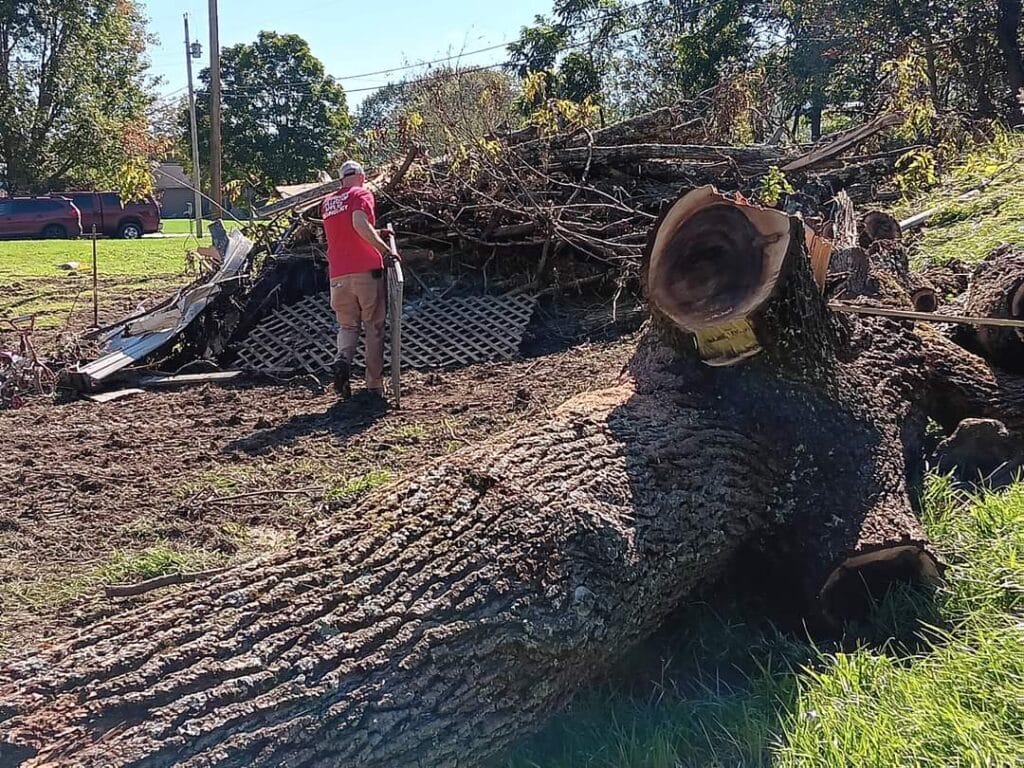
Canter said that he sees momentum in the right direction. The outfitter has access to some private water that was not significantly damaged and has started booking a few trips.
“The streams don’t look the same,” he said. “But the fish are still there and they’re still eating.
“And the phone has started ringing again.”
Canter mentioned one stream that had been declining as a trout fishery.
“It had become really clogged with silt, but a lot of that sediment is now gone and you can actually see rocks,” he said. “This horrific flood could have actually saved that stream.
“So, hopefully there will be a few positives that come out of this.”


